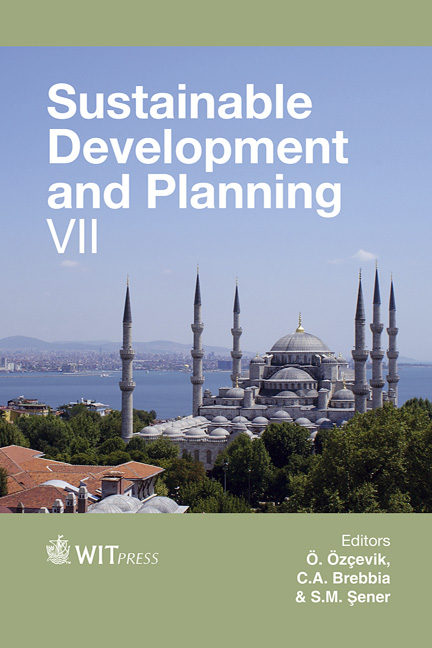A Methodology Approach For Analysis Of Sustainability Indicators As A Tool For Decision Making Using Fuzzy Logic
Price
Free (open access)
Transaction
Volume
193
Pages
10
Page Range
345 - 354
Published
2015
Size
548 kb
Paper DOI
10.2495/SDP150291
Copyright
WIT Press
Author(s)
Á. L. G. Carneiro, F. H. F. Quinhoneiro
Abstract
The greatest challenge of this century is focused on sustainability due to, among other reasons, the world population growth and consequently an increase in demand of resources such as water, food and energy. The main difficulty when discussing the issue of sustainable development is the evaluation methodology. Therefore, there is a need for a measurement tool that addresses these resources in a holistic manner and be able to translate data into results that can be interpreted in an easy way. There are tools validated for this purpose like: “Dashboard of Sustainability”, “Barometer of Sustainability” and others under development such as the CLEW Nexus by the International Atomic Energy Agency (IAEA). This paper aims to develop a new model to analyze the correlation between the variables, energy, water, land use and climate, using artificial intelligence through fuzzy logic, having as a database, indicators that represent one or more resource, considering the relative and temporal distribution required to research results and behaviors. The result is a final index generated by mapping these input data. The results presented in this paper refer to an analysis of Brazilian indicators, although they can be applied to any other country, allowing a comparison analysis of the behavior of index between regions. The contribution of this project is the availability of a tool with powerful computational resource, aimed at decision makers to assist in developing strategies and development policies.
Keywords
sustainability indicators, decision making, fuzzy logic





